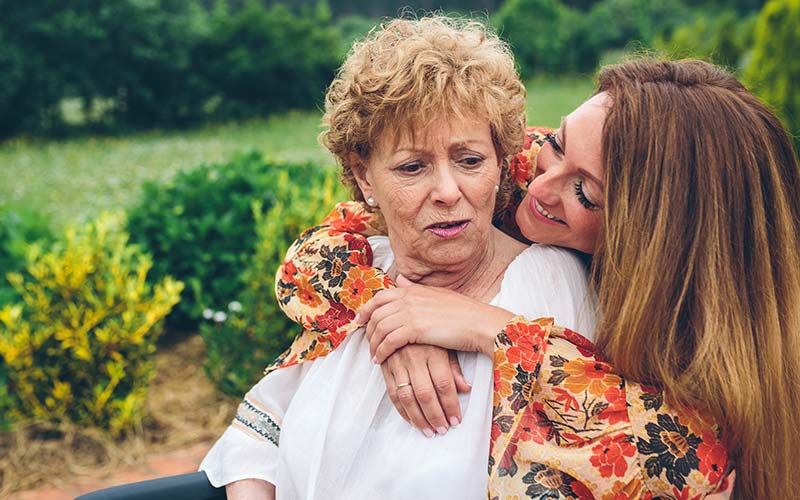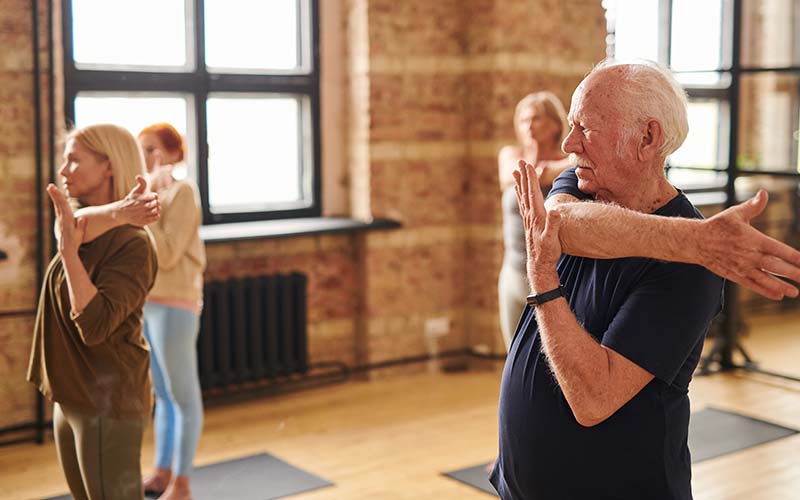You might not have heard of it, as many who haven’t had to care for aging loved ones aren’t aware of what sundown syndrome is. It’s a condition that typically affects those with dementia and Alzheimer’s and can happen at any stage, though it’s most common around the middle stages of the illness. It can also be present in patients that don’t have signs of dementia or Alzheimer’s, but it is most associated with those that do.
Sundown syndrome is a condition that happens about the time the sun is ready to set, hence the name. Medical experts are still not sure what causes sundown syndrome, but common theories seem to center around the biological clock and circadian rhythms.
According to the Alzheimer’s Association in their article about sundown syndrome, “People living with Alzheimer’s and other dementia may have problems sleeping or experience increased confusion, anxiety, agitation, pacing and disorientation beginning at dusk and continuing throughout the night.”

What happens with sundown syndrome?
Unlike other changes in mood that might happen throughout the day, like delirium for example, sundown syndrome typically hits in the afternoon. When a loved one is experiencing symptoms of sundown syndrome, they’re typically referred to as “sundowning.”
Some sundowning symptoms are sudden changes in mood, such as irritability, becoming increasingly anxious or more easily agitated, confusion or disorientation. They might even become delirious and see or hear people or things that aren’t there.

Can sundown syndrome be avoided?
Because sundown syndrome is a part of cognitive decline, you’ll likely be unable to avoid sundowning. That doesn’t mean there’s nothing you can do. You can do certain things to lessen the reaction, sometimes significantly.
When sundown syndrome presents itself with an aging loved one, it is now more important than ever to try and keep a routine they are used to. Repetition and patterns help them stay focused on what is going on around them. Keeping things calm and doing things like playing relaxing music can ease things that trigger a sundown reaction.
It is important that they get plenty of rest, so avoiding things like heavy meals in the evenings and stimulating activities like exercise. It is also best to avoid stimulants like caffeine, nicotine and alcohol.

What to do if someone is sundowning?
When you can, you’ll want to have their health practitioner take a look into what’s going on with them and determine if it really is sundown syndrome or something else. They’ll be able to offer some guidance on how to help them.
But, in the meantime, if you’re experiencing a loved one having a sundown event, there are a few things to keep in mind. First, they have little control over how they’re reacting. They will need you to be soothing and calming. You’ll need to keep your composure, no matter how ugly the situation might get.
Try to remind them of things like, what time it is or what they are doing right now. Arguing with them is going to make this worse, so staying calm and reassuring to them will help you both get through this. Letting them know that you’re there for them, that you care for them and that thinks will be okay is helpful.
Try to get them back in the moment, and once you do, you might find that this will help calm them down. Your loved one might not know what’s wrong or what’s bothering them. Keep in mind, this is happening to them and they have no control over it.

Are you taking care of yourself?
Sundown syndrome might sound a bit like a toddler’s temper tantrum. It’s very similar, especially in the fact that reasoning with them becomes incredibly difficult, if not impossible.
If you know what it’s like to deal with a raging toddler, you’ll find this to be similar. And you know how exhausting that is.
If you are caring for a senior who is sundowning, you’re going to need your rest and strength. And you’re going to need mental clarity.
It is important to take time for yourself and get help where you can. Respite care might also be a good solution for you to make sure you’re being taken care of as well.
When you’re in a place of good health, you’ll be in a better position to take care of them.

